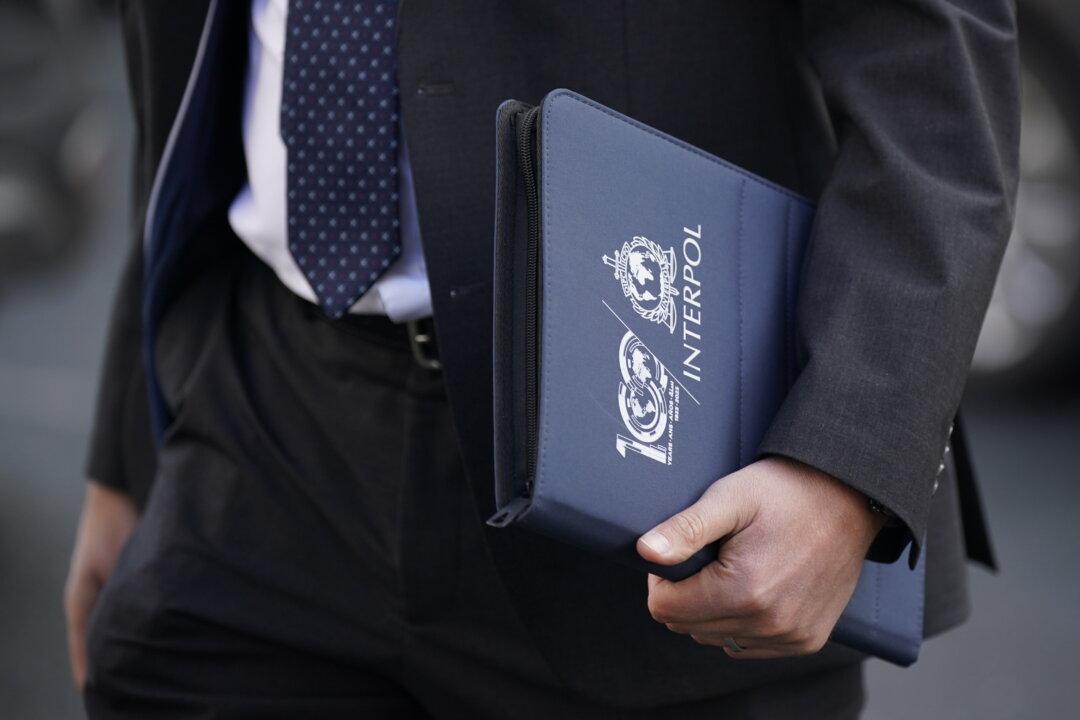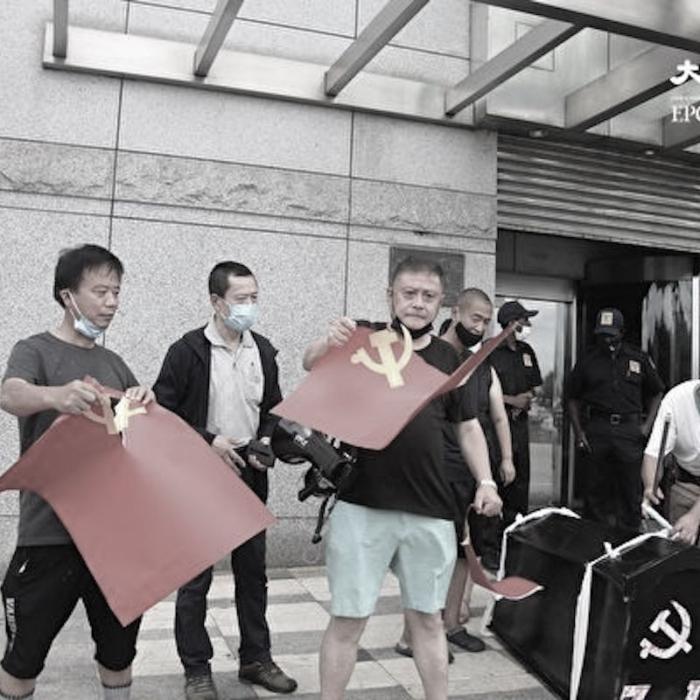A British police officer who is in the running to become the next secretary general of Interpol has highlighted the action he has taken to strengthen the red notice system after authoritarian states like China and Russia were accused of abusing it to try to catch political dissidents and regime critics.
Russia has issued repeated “wanted” notices and arrest requests for Bill Browder, a vocal critic of the Kremlin who is based in London.
In 2021 China issued a red notice for Yidiresi Aishan, a Uyghur activist and website designer who lives in exile in Turkey, but Interpol classed it as “non-compliant.”
Stephen Kavanagh, who is currently Interpol’s executive director of police services, said he had put in place new processes to prevent such abuses.
Mr. Mast said, “China is using this for purposes of political suppression, getting people extradited back to China, again for the purpose of political suppression, and not necessarily because they’ve committed crimes that would be considered anything other than free speech.”
‘Corrective Measures’ Have Been Introduced
He pointed out any of the 196 countries that use Interpol’s services can be subjected to “corrective measures” if they are found to be abusing the system.Mr. Kavanagh said the red notice reforms he has introduced are integral to his campaign to succeed Jürgen Stock, a German, as secretary general in November.
There are three other candidates for the job: Valdecy Urquiza, the Brazilian federal police’s director for international cooperation; Faisal Shahkar, a Pakistani who is currently head of the United Nations’ police division; and Mubita Nawa, who is the director of the Zambian police service.
Mr. Kavanagh, who was chief constable of Essex between 2013 and 2018, joined Interpol in 2020.
He has the endorsement of Prime Minister Rishi Sunak, who is quoted on his campaign brochure as saying Mr. Kavanagh will make Interpol an “innovative, modern organisation that is unfailingly committed to tackling global criminal threats.”
In his interview with The Times of London, Mr. Kavanagh emphasised the speed with which international criminals adapt to technological opportunities like artificial intelligence and encrypted phone networks.
‘We Have to Be More Innovative in the Future’
Mr. Kavanagh said: “We should have a one-stop capability for police officers to go to IP providers, to investigate cryptocurrency exchanges. I think we have to be more innovative in the future to go after these organised criminals. And that’s what’s going to make a difference and make Interpol even more credible in the years to come.”Interpol, which was founded in 1923, now has databases which are used by police departments around the world more than 20 million times a day.
While he is wary of abuses of the red notice system, Mr. Kavanagh said it is important that lines of communication are kept open with law enforcement agencies in countries like Russia and China.
He pointed out that in late 2020 Interpol coordinated the rescue of a young boy who was at risk of exploitation by a paedophile gang in Russia, after U.S. authorities noticed ominous communications on the so-called dark web.
It is unclear whether such coordination would happen today in the wake of Russia’s invasion of Ukraine.
But Mr. Kavanagh said, “Interpol has to keep these avenues open because criminality will go where there is the least effective law enforcement.”
“There’s about 10,000 red notices a year. They are responsible for the arrest of people who are abusing kids, who are travelling to evade local justice, who are murdering and then moving on to other locations,” he added.
Interpol’s executive committee will choose a single preferred candidate in June and that person will become secretary general if ratified by a vote of the body’s general assembly in November.
Safeguard Defenders, a not-for-profit that monitors disappearances in China, welcomed the comments by Mr. Kavanagh.
But Laura Harth, campaign director with Safeguard Defenders, said in a statement emailed to The Epoch Times, “More needs to be done not only to prevent abusive notices, but also to take into account the grave human rights violations anyone sent back to China’s current judicial and penitentiary system will be exposed to as a result of Interpol notices.”
“The European Court on Human Rights has ruled in October 2022 that any such return would effectively constitute a violation of the international legally binding principle of non-refoulement given the ‘general situation of violence’ in China’s domestic penitentiary system,” she added.
Ms. Harth said, “So the problem with the People’s Republic of China unfortunately goes beyond its brazen abuse of international police cooperation mechanisms.
“That said, this is a very welcome statement and it inspires hope that the issue is high on the mind of a candidate for Interpol’s top job. It would most certainly signal a strong departure from the previous post-holders,” she added.







